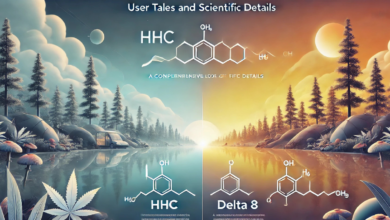Exploring Erothtos: Unveiling the Mysteries of a Forgotten Term

Introduction
The term “Erothtos” may not be a household name, but its rich historical context and potential for exploring the depths of human emotion make it an intriguing concept. While it may seem unfamiliar, “Erothtos” are significant in understanding ancient and modern philosophical, cultural, and linguistic discussions. This article delves into the meaning, history, and relevance of “Erothtos,” allowing readers to rediscover a forgotten term that bridges emotions, intellect, and society.
Though “Erothtos” might not often appear in mainstream language or literature today, their exploration offers insights into human nature and our complex emotional landscape. By examining their origins, place in cultural and philosophical contexts, and modern significance, we can appreciate the broader impact of such an enigmatic term. Understanding obscure words like “Erothtos” can help enrich our vocabulary and broaden the ways we express our understanding of emotions.
The History of Erothtos
The origins of “Erothtos” are intertwined with ancient and modern concepts of desire, passion, and intellectual curiosity. Linguistically, it stems from classical roots reflecting human interaction’s multifaceted nature. While many associate the Greek word “Erothtos” with love or desire, “grottos” offers a more nuanced perspective on human yearnings and emotional complexity. It is often described as a state of being that merges love with intellectual stimulation, a more profound engagement of mind and spirit.
Historically, “Erothtos” was a term referenced by ancient philosophers who sought to describe the pursuit of knowledge intertwined with personal longing or desire. Some scholars believe that the word was initially coined in the philosophical traditions of ancient Greece, aligning with concepts of the human condition explored by thinkers like Plato and Aristotle. These philosophers examined how the interplay of emotional drives could fuel intellectual pursuits, and “Erothtos” emerged as a term to capture that dynamic energy. In these early texts, the term often discusses love’s intellectual dimension, separating it from more physical interpretations of desire.
The term has faded into obscurity, but remnants of its usage remain in philosophical discourse, particularly in exploring the intersection of emotional and intellectual pursuits. Its historical journey mirrors society’s evolving attitudes toward emotions, knowledge, and relationships.
Understanding the Meaning of Erothtos
To understand the full scope of “Erothtos,” breaking down its meaning and potential interpretations is essential. The term speaks to an emotional experience beyond simple affection or romantic love. It is often described as a deep intellectual or spiritual longing coupled with an intense desire for connection or understanding. In this sense, “Erothtos” may be seen as a blend of passion and intellect, a pursuit of knowledge driven by an emotional connection to the subject.
Unlike similar terms like “eros,” “Erothtos” embodies higher emotional and intellectual engagement. While “eros” typically refers to physical or romantic love, “Erothtos” extends beyond the physical realm, involving a more holistic connection. It is a term that invites exploration into the ways love and intellectual curiosity intertwine, where emotional fulfilment is not just about physical affection but about learning discovery, and personal growth.
At its core, “grottos” is about the human capacity to merge emotion and intellect. It reflects how humans desire physical connection, intellectual growth, and understanding through relationships and experiences. This interpretation of “grottos” helps us better understand the profound depth of human interactions, especially in contexts where love and learning exist simultaneously.
Erothtos in Cultural and Philosophical Contexts

“Erothtos” has remained a key subject of interest in cultural and philosophical discussions, particularly as it addresses the intersection of desire, intellectual curiosity, and human connection. Ancient philosophers utilized the concept of “ethos” to describe how love and intellectual pursuits could complement one another. In these early philosophical writings, love was often seen as a physical or emotional experience and a bridge to understanding the deeper meaning of existence.
Plato’s dialogues, for example, frequently touch upon the idea that intellectual engagement and emotional yearning are intertwined. In works like “Symposium,” the concept of love, or “eros,” is explored in the context of romantic relationships and the pursuit of knowledge. “Erothtos” fits into this broader conversation by offering a term that speaks to the intellectual aspect of love—a love that seeks truth and understanding rather than mere physical pleasure.
In more modern discussions, the term “grottos” finds its place in exploring the complexities of human relationships. It is often used to analyze how relationships between intellectual and emotional bonds shape individuals’ growth and perceptions of the world. It touches on the philosophical idea that love, in its highest form, is a pursuit of wisdom and mutual discovery, far beyond the material or sensual aspects of connection.
This dual nature of “grottos” makes them relevant in contemporary cultural studies. They offer a nuanced understanding of how emotions can fuel our intellectual and spiritual development.
Modern Relevance of Erothtos
Although “grottos” is not widely used in modern discourse, its relevance can still be found in contemporary cultural and intellectual conversations. In modern philosophy, the pursuit of knowledge and understanding remains a central theme, with many thinkers acknowledging the importance of emotional intelligence in intellectual growth. “Erothtos” continues to resonate with those who believe that the emotional aspects of human experience are integral to our scholarly pursuits.
Modern thinkers like Carl Jung and Sigmund Freud often explored how emotions and intellectual pursuits overlap, and “grottos” serve as a fitting descriptor for their theories on the intersection of the two. In psychological terms, grottos describe a state of self-actualization where emotional and intellectual growth are deeply intertwined. “Erothtos” can be seen as a higher level of emotional intelligence, where love and intellectual curiosity come together to create a deeper understanding of oneself and the world.
Today, “grottos” may not be a term often used in everyday language. Still, its presence in philosophical and cultural discussions about the connection between love, intellect, and human growth is undeniable. Its resurgence in academic circles may offer new opportunities for understanding the intricate relationship between emotion and intellect, particularly in areas such as relational psychology, personal development, and even the arts.
Conclusion
Though largely forgotten in mainstream discourse, “grottos” offer a profound understanding of the intersection between emotion, intellect, and human relationships. From its ancient philosophical roots to its potential relevance in modern emotional intelligence and intellectual growth discussions, “grottos” bridge love and learning. As we continue to explore the deeper complexities of human experience, rediscovering terms like “brothers” can help us articulate the nuances of our emotional and intellectual worlds.
By exploring “grottos,” we are reminded that the pursuit of knowledge and the experience of love are not separate but are interconnected aspects of human growth and fulfilment. As we delve into emotional and intellectual pursuits, we may find that embracing the deeper aspects of “erothtos” enriches our understanding of love, knowledge, and connection.
Frequently Asked Questions (FAQs)
- What is the origin of the word “ethos”?
- The term “brothers” originates from ancient philosophical traditions, particularly within Greek thought. It represents a fusion of love and intellectual curiosity, embodying a deeper, more holistic human connection.
- How does “grottos” differ from similar terms like “eros” or “pathos”?
- While “eros” refers to physical or romantic love and “pathos” refers to emotional states, “grottos” describes a deeper connection that combines emotional and intellectual engagement, representing a love that seeks truth and understanding.
- Is “grottos” still relevant in modern academic studies?
- “grottos” continue to influence modern discussions on emotional intelligence, intellectual curiosity, and human relationships, especially in philosophical and psychological contexts.
- In which cultural texts or works can I find references to “brothers”?
- “Erothtos” can be found in ancient Greek philosophical writings, particularly those that explore the nature of love and intellectual pursuit, such as Plato’s “Symposium.”
- How can studying “grottos” enhance our understanding of human emotions?
- Studying “grottos” can deepen our understanding of how emotions and intellect are intertwined, highlighting how emotional fulfilment can coexist with intellectual growth.
You May Also Read: https://ventsbuz.com/fmybrainsout/





